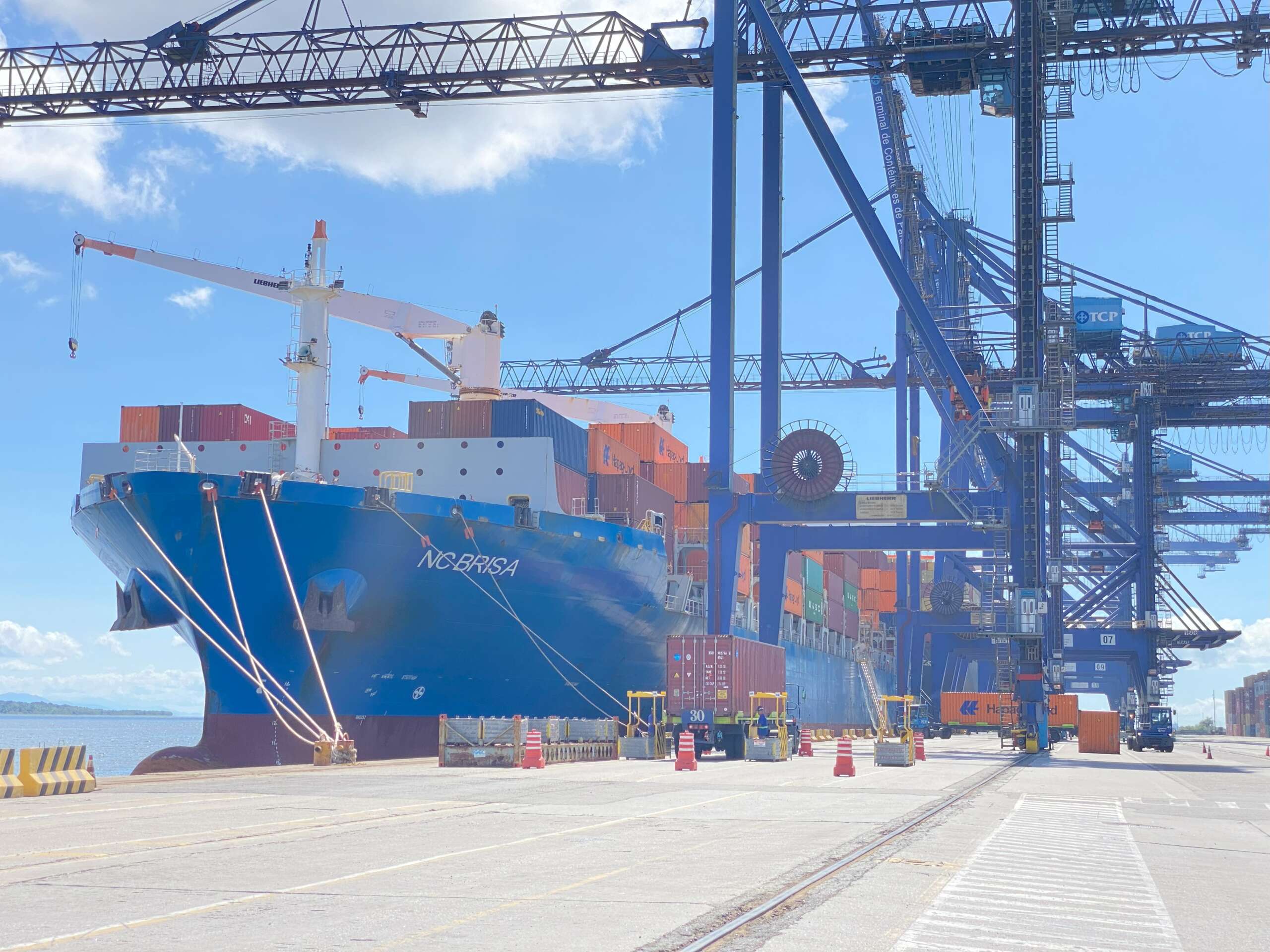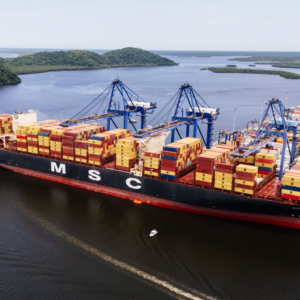Operated by the shipowner Norcoast, the line had its inaugural berthing this Thursday
In February, TCP, the company that manages the Paranaguá Container Terminal, announced the addition of another weekly service to its portfolio: the cabotage line offered by the shipowner Norcoast, which had its inaugural mooring this Thursday, the 8th. The route has four vessels calling at Paranaguá (PR), Santos (SP), Suape (PE), Pecém (CE) and Manaus (AM).
At 224 meters long, 35 meters wide and capable of carrying 3,510 TEUs, the NC Brisa container ship was the first vessel on the new line to arrive at the Paranaguá Container Terminal. The Norcoast service will generate an average of 720 TEUs (20-foot-long containers) per berth at the terminal.
Among the main products expected to be handled on this route are consumer goods and electronics, coal/activated minerals, glass, meat, paper and cellulose, wood, and refrigerators and freezers.
TCP’s commercial manager for shipowners, Carolina Brown, says that cabotage “is an extremely important logistics solution for the national logistics chain. Our customers now have a new service option and additional capacity in Paranaguá to transport their goods from the north to the south of Brazil”.
Used to move containers between ports located in different regions of the same country, cabotage is an economical and safe alternative that minimizes the risk of damage and accidents, as well as emitting less greenhouse gases than other modes.
Leader in maritime services in Brazil
With 22 weekly services, TCP is the country’s largest hub for maritime calls. The large flow of vessels meant that, in December 2023, the terminal achieved a new record for the number of ships berthed in a single month, reaching 83.
In January 2024, the Paranaguá Container Terminal was the first Brazilian terminal to receive a 366-meter-long container ship, the largest ever operated in the country. “One of the pillars of our strategy is to act as a port hub for shipowners, centralizing their operations in a safe and efficient manner,” concludes Carolina.



